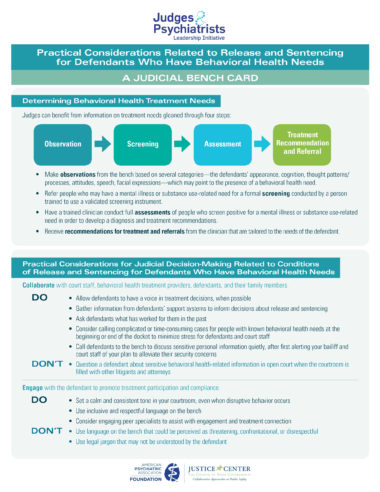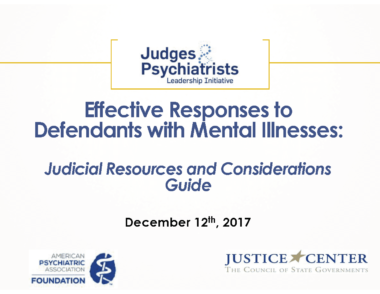Practical Considerations Related to Release and Sentencing for Defendants Who Have Behavioral Health Needs: A Judicial Guide
The Judges and Psychiatrists Leadership Initiative (JPLI) released Practical Considerations Related to Release and Sentencing for Defendants Who Have Behavioral Health Needs: A Judicial Guide and an accompanying bench card, which were developed with the support of the American Psychiatric Association Foundation and the CSG Justice Center. The resources are designed to assist judges in making informed connections to treatment for people with behavioral health needs who enter their courts.
The guide and bench card were informed by a May 2017 convening of judges, psychiatrists, people who have behavioral health needs and have been in the justice system, and family members who came together to discuss behavioral health care resources and decision making around conditions of release and sentencing. The convening was hosted by the CSG Justice Center and the American Psychiatric Association Foundation as part of the Judges and Psychiatrists Leadership Initiative, a project that supports efforts by judges and psychiatrists to improve judicial, community, and systemic responses to people in the criminal justice system who have behavioral health needs.
This webinar announced the field-wide release of Practical Considerations Related to Release and Sentencing for Defendants Who Have Behavioral Health Needs: A Judicial Guide, a resource designed to assist judges in making informed connections to treatment for people with behavioral health needs who enter their courts. During the webinar, judges and other court personnel learn about the tips for recognizing indications of a mental illness and/or substance use disorder in the courtroom, the process for treatment recommendation and referral for defendants with behavioral health needs, and how to collaborate with behavioral health care providers in their communities.












